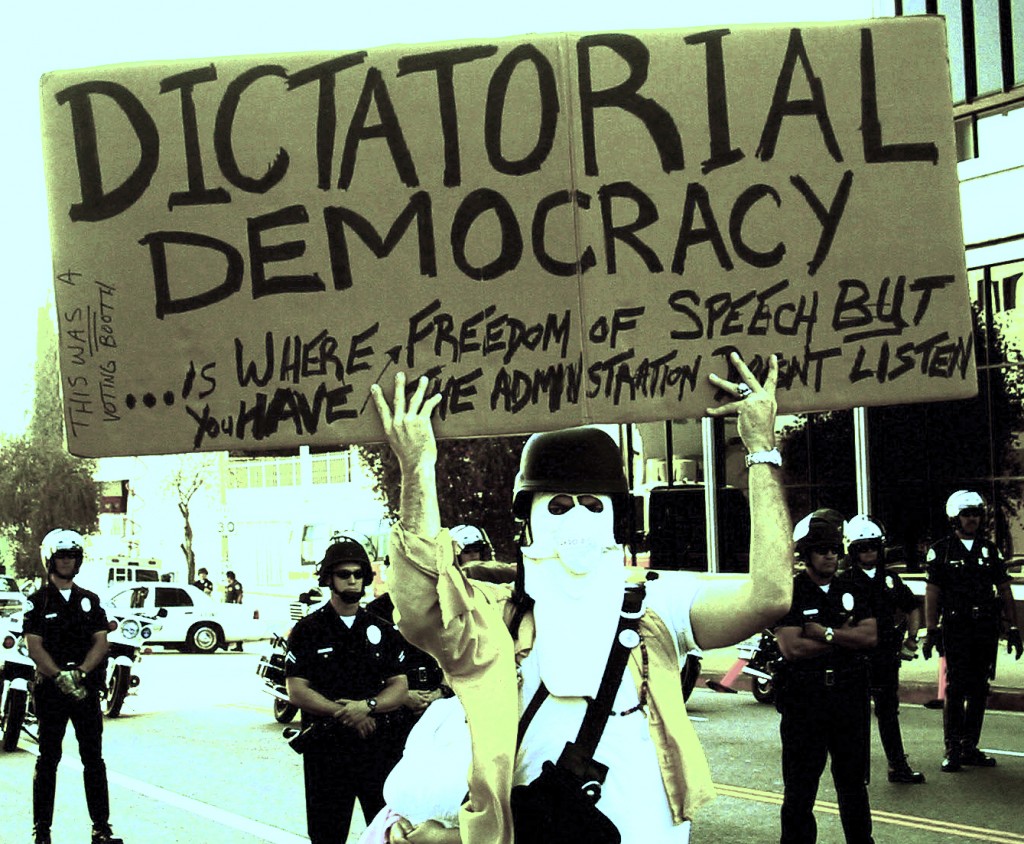THE 2016 PRESIDENTIAL ELECTION is unlike anything we’ve seen in the U.S.
Widespread dissatisfaction on the right may lead many Republicans to pass on the polls in November. A large percentage of Bernie Sanders’ supporters continue to refuse to back Hillary Clinton, should she get the Democratic nod. For once, it seems, the parties agree: the candidates are all alike, and they mostly suck.
But is this true? The answer goes beyond a simple yes or no. Really, it depends on how much privilege you have.
First, let’s talk about the landscape of the 2016 elections. Political polarization has become a hot-button issue, with the rise of the openly sexist, ableist, and xenophobic Donald Trump. From his podium, Trump incites violence against U.S. citizens and showcases his total disregard for the 1st Amendment.
The solution to this problem would be for the Right to throw their support behind another contender, with Ted Cruz as the obvious pick. But as more and more voters have flocked to Trump, the truth has become clear: the GOP has failed to produce a viable candidate. Roughly half of the Republican voter base is dissatisfied with its party’s choices.
Some of these voters will inevitably drift left, but neither of the potential Democratic nominees is a strong draw for conservatives. Sanders’ democratic socialism reads like communism to right-wingers, and successful smear campaigns against Clinton have rendered her all but un-electable among Republicans.
On the other side of the fence, Sanders’ and Clinton’s supporters are locked in a battle of hurled insults and in-fighting. Many white Democrats have alienated liberal voters of color by insisting their candidate has an unblemished record on racial equality, and that dropping a ballot for the opposition is tantamount to voting against their interests, all the while ignoring that neither Sanders nor Clinton has a perfect history when it comes to these issues.
Sanders’ supporters are further divided by how they plan to handle a Clinton nomination. The #BlueNoMatterWho crowd will back Clinton to avoid a Trump presidency. For his part, Sanders intends to support Clinton if she gets the Democratic nod, and refuses to run as an Independent candidate: “I made the promise that I would not and I will keep that promise. And the reason for that is I do not want to be responsible for electing some right-wing Republican to be president of the United States.”
Unfortunately, the drive to be like Bernie — that is, to emulate his polite politics — only goes so far. Many of his supporters maintain that Trump and Clinton are the same candidate. Some even go so far as to say that the #BlueNoMatterWho folks have been planted in the community to sow support for “Shillary.” Come November, these Berniebros will either write in Sanders’ name or cast a ballot for Green Party candidate Jill Stein. More than a handful might even vote for Donald Trump, Sanders’ polar opposite.
The staunch Sanders supporters who are willing to throw the presidency to the GOP’s most volatile candidate share a few characteristics. They are overwhelmingly white and male. I wouldn’t hesitate to say that most are straight and cisgender. If many are concerned about losing welfare benefits or insurance subsidies, they certainly aren’t voting with those things in mind.
Regardless of their level of privilege, these voters aren’t concerned with their neighbors’ fortunes under Trump. People of color, women, LGBTQIA individuals, people with disabilities, and those who are not wealthy do not have the luxury of believing that all the candidates are the same.
Yes, Clinton, Trump, and the vast majority of the two-party establishment have corporate ties. They have supported various questionable efforts, from the Patriot Act to crime bills. Measured by these standards, Sanders is a major outlier, a fluke.
But here’s the thing: Clinton’s policies today are virtually indistinguishable from Sanders’. The Clinton vs. Sanders argument is almost as silly in 2016 as the Clinton vs. Obama disputes were back in 2008. Eight years on, few wonder what would be drastically different now if Clinton won the nod.
The contrast between 2016’s Democratic candidates and GOP frontrunners is clear. Both Trump and Cruz are anti-choice, anti-immigrant, pro-war, and pro-torture. They oppose the Affordable Care Act, renewable energy, environmental regulations, and same-sex marriage. On all eight of these issues, they stand in opposition to Clinton and Sanders.
For a privileged few, same-sex marriage and reproductive health care access may seem less important than whether or not a candidate has Big Business support. However, if the GOP takes the White House and retains congressional control, American economics will be negatively impacted by these eight issues and more. Whether or not you’re personally targeted by these policies, they will still affect you — and your neighbors — indirectly. Unless you’re a rich, cishet, white, male Christian, the candidates aren’t all the same.







-300x169.jpg)


-300x221.jpg)






